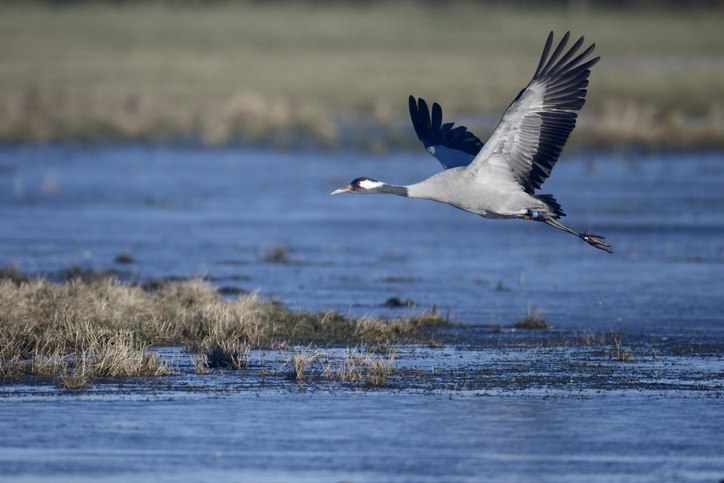Aviva to support restoration of shrinking saltmarsh habitat to combat climate change

Authored by Aviva
Aviva is partnering with the Wildfowl & Wetlands Trust (WWT) on an innovative saltmarsh creation project in the UK, one of the largest in the UKThe partnership will see Aviva donate £21 million to WWT to restore up to 250 hectares of saltmarshThe project will develop best practice in saltmarsh restoration, to help combat the interlinked emergencies of climate change and catastrophic nature lossSaltmarsh habitat has been estimated to protect more than 90,000 properties and more than £2 billion of assets through reducing flooding in the UK– an increasing impact of climate change
Aviva has announced a new partnership with the Wildfowl & Wetlands Trust (WWT) to support saltmarsh research and restoration in the UK. The work supports Aviva’s ambition to make the UK the most climate-ready large-economy by 2030.
Saltmarshes have a significant role to play in fighting climate change and reversing nature loss by providing a long-term, natural store of carbon and creating a rich and unique habitat for plants and animals specially adapted to the conditions. It is estimated that 85% of English saltmarsh has been lost in the last 200 years.
Saltmarshes also provide natural protection from flooding and coastal erosion for nearby communities, with remaining saltmarshes estimated to provide over £1 billion2 in flood resilience benefits to UK homes. A 2019 Government report identified 22,000 hectares of land around the UK coast that could be restored to saltmarsh potentially capturing over 300,000 tonnes of carbon a year3.
The partnership between Aviva and the WWT will develop best practice in saltmarsh restoration, unlocking its power to deliver multiple benefits. It will see Aviva donate £21 million to WWT to restore up to 250 hectares of saltmarsh and support new ‘on the ground’ research to help fill evidence gaps and provide a catalyst for further investment in saltmarsh creation to help combat climate change and reverse nature loss.
The £21 million donation builds on Aviva’s recent donations of €5m to the Nature Trust in Ireland, £38m to the Wildlife Trusts and £10m to the Woodland Trust.
Claudine Blamey, Aviva’s Group Sustainability Director, said:
“Saltmarshes are precious habitats that have a significant role to play in fighting the climate emergency and improving the UK’s climate resilience. Not only do they remove carbon from the atmosphere and support biodiversity, they also deliver flood mitigation benefits for nearby communities.
“This project will help to protect more than 90,000 properties and more than £2 billion of assets. We are delighted to fund leading research that will make a genuine contribution to the wider understanding of how saltmarshes can help move Aviva and the UK towards our net zero ambitions.”
Sarah Fowler, Chief Executive of the WWT said:
“We are incredibly excited about our new transformative partnership with Aviva which aims to unlock the superpowers of wetlands to help combat the interlinked emergencies of climate change and catastrophic biodiversity loss. The project will achieve this by restoring saltmarsh, a coastal habitat which is in serious decline, with 50% lost globally over the centuries to farming and development.
“The saltmarshes which remain are beautiful places with never-ending horizons rich in wildlife. Not only do they make our hearts sing, but they also provide a natural solution to many of our most pressing problems. They help communities become more climate resilient by quickly and effectively storing carbon and absorbing flood tides They also restore wildlife, clean polluted water and boost our mood.
“This ground-breaking project will allow us to apply our wide experience of restoring wetlands to create much needed new saltmarsh, and fund research to help us understand how to maximise and replicate its full potential for existing and future generations. With the climate and nature crises showing no sign of slowing there has never been a more crucial time for this partnership, which will deliver effective natural solutions to urgent man-made problems.”





